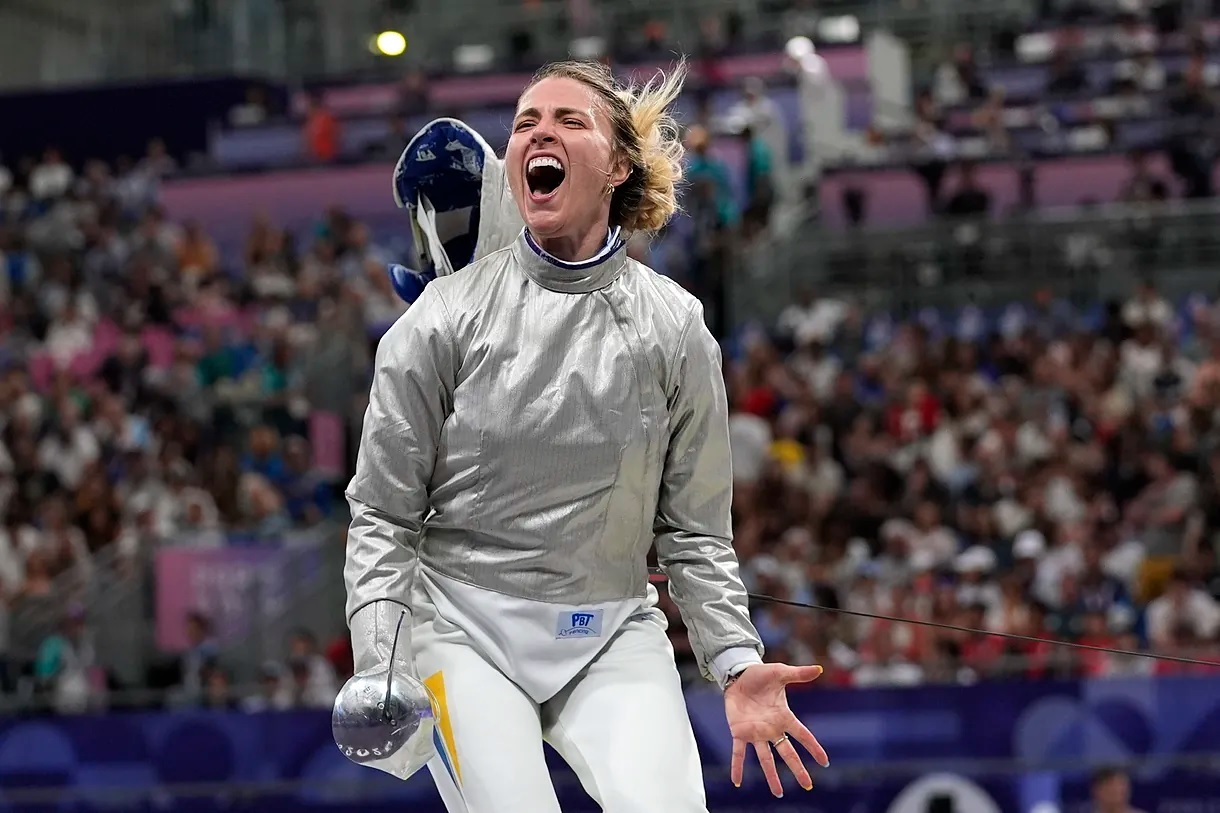She entered the crystal palace as if she were a medieval knight, with her saber and armor, waving her long blonde hair before putting on her visor. On the protective mask, the colors of her flag: blue and yellow. On her back, her name, cheered by the crowd every time she managed to touch her opponent and score a point: Kharlan. She ended up winning the first Olympic medal for Ukraine.
Olga Kharlan (Mykolayv, 33 years old) was yesterday one of the centerpieces at the majestic crystal palace where the fencing events are taking place, the Grand Palais. The Ukrainian athlete, besides her sporting performance, was in the spotlight because, with her saber, she has made a stand to prevent the presence of Russian athletes at these Olympic Games in Paris.
The Olympic champion was eliminated from the fencing world championship in Milan last year after refusing to greet her opponent, the 23-year-old Russian athlete Anna Smirnova. She was representing the country under the status of "neutral individual athlete."
After the match, as usual, the Russian approached her, but Kharlan pushed her away with her saber before turning around and leaving. The war in the country, the debate about the relationship between geopolitics and the Olympics, was staged on that track that July, through two women dressed in white with swords in hand.
The Russian protested to the fencing federation, which disqualified Kharlan. She has continued to defend her cause: "I will never shake hands with a Russian athlete", she claimed. The fate of the Ukrainian champion at these Games was uncertain until the President of the International Olympic Committee, Thomas Bach, sent her a letter inviting her to participate in the Olympic event and the sanction was lifted. Kharlan has four Olympic medals and 60 world podiums.
"I cannot imagine how you feel at this moment: with the war in your country, the suffering of the population in Ukraine, the uncertainty about your participation in the Milan World Championship (...) It is admirable how you have managed this incredible situation and I want to express my support to you," Bach said in the letter.
At the Grand Palais in Paris, under its impressive dome, Kharlan defeated her opponents yesterday. She started in the morning by beating her Japanese rival. With each point scored, the Ukrainian shouted. Then, she eliminated the one from Azerbaijan and the Italian. The French fencer eliminated her to reach the final, but she managed to defeat the Korean and win the bronze, the first medal for Ukraine.
These could be her last Games in Paris, as she herself has said she wants to take a break. The Russian war in her country and her fight to denounce Russian participation have worn her out.
Kharlan said that, after the war, she thought about quitting fencing. "In the competition, I was eager to prove something and win for my country and my parents, because sports give hope and positive emotions. But for six months, I had no strength for even the smallest individual or team result," she said when she was disqualified at the Milan World Championship.
In these Games, no Russian fencers participated, nor did Belarusians. They could have, but not under their flag, but under the status of a neutral individual athlete. None of those who could have competed registered.
The Spanish fencer Lucía Martín-Portugués was eliminated in her Olympic debut. The athlete, who aimed to win a medal, was defeated in the first round. "What a shame, I lost in the first round when I came for a medal. I didn't feel myself," said the athlete, crying, in statements to the press. In the stands, she was supported by the Infantas Leonor and Sofía, as well as by the President of the Spanish Olympic Committee, Alejandro Blanco. The Spanish fencer has brought Spanish fencing back to Olympic competition after 16 years without participation.
